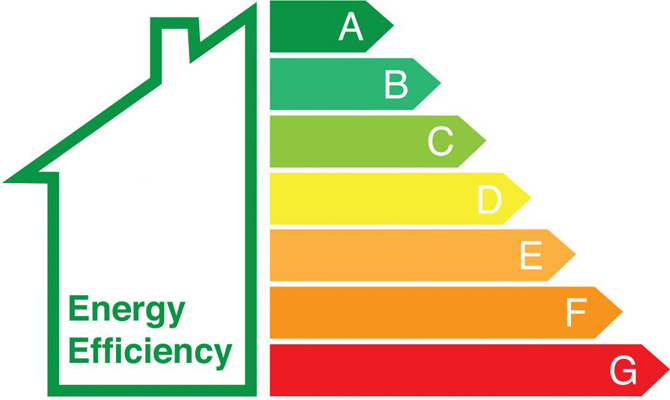
EPC Regulations Are About To Change – Here’s What You Need To Know.
On a mission to achieve net-zero emissions by 2050, the UK government have proposed new EPC regulations. These changes are due to take effect in 2025.
The phased changes will affect new tenancies from 2025 and all existing tenancies from 2028. This may seem a way off, but to comply with the regulations time and money will need to be spent on your property. If you don’t comply, you could face fines of up to £30,000.
What are EPC regulations?
The Energy Performance Certification was introduced back in 2007 as an essential part of the Home Information Pack (HIP), which was required for the sale of a property with four or more bedrooms. In 2010, a HIP was no longer a legal requirement, but the EPC regulations remained in place as a way of making people more aware of their energy consumption. Knowing the EPC rating of a property also helps interested tenants or buyers understand the potential long terms cost of utility bills for that property.
The EPC regulations rate a property on energy efficiency on an A to G scale – A being the most efficient. Under the current regulations, a rental property needs to be certificated with an E rating at least. Under the new EPC regulations, a rental property must be certified a C or above to demonstrate acceptable energy efficiency.
What is the impact of the new EPC regulations on landlords?
It is the responsibility of the landlord to have a property EPC inspected every ten years and provide their tenants with the certification However, to prepare for the regulatory changes, you will need to have your property re-inspected for suggested improvements regardless of when your next EPC inspection is due. You will then need to implement these changes before applying for your certification again.
FACT: According to statistics, nearly 60% of UK homes have an EPC rating of D or below.
However, the main issue is cost. Improving the EPC rating of your property from an E to a C is a big jump and will take investment. Currently, the personal cost to landlords is capped at £3,500. When you max this budget, you can apply for an exemption, providing you have kept careful records of expenses and improvements.
On the bright side, reducing the carbon footprint of your property can mean lower energy bills which is a real selling point for any tenant. By implementing the required improvements, you can increase your return on investment in the long run.
What type of improvements might landlords need to make?
This heavily depends on the energy efficiency of your property currently. If your property is rated a D, few changes will be needed. If your property is rated an E to G, there are a number of improvements you could get working on now in the interest of preparation and spreading the cost:
- Switch standard lighting to LED bulbs
- Insulate – lofts, cavity walls and even external walls with thermal rendering
- Improve the windows of your property with double or triple glazing
- Upgrade the boiler in your property
- Install a smart meter
Renewable energy options such as solar panels and air-source heat pumps are also a great way to improve the energy efficiency of your property.
Big changes in property regulations like this can be daunting. With over 40 years’ experience in property investment and development and many success stories to be proud of, we recommend you act sooner rather than later. Being prepared not only helps spread the cost but also gives you the time to make sure you execute renovations and improvements in a way that will future proof your investment.
We work with a great team of trusted tradesmen and have a wealth of experience in negotiating the inevitable hurdles of property investment. We can even manage the project for you!










